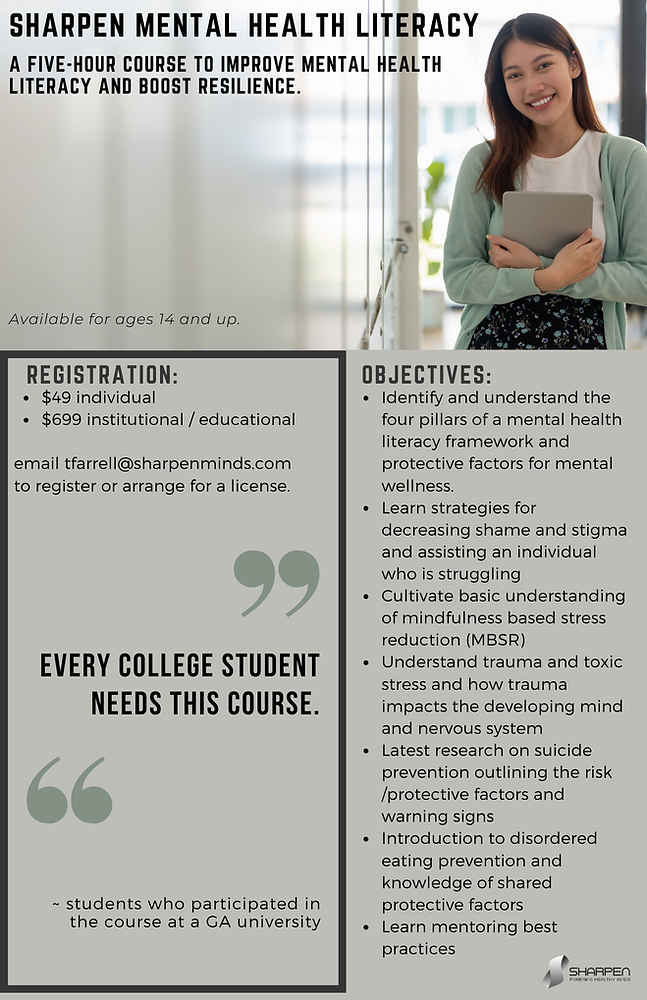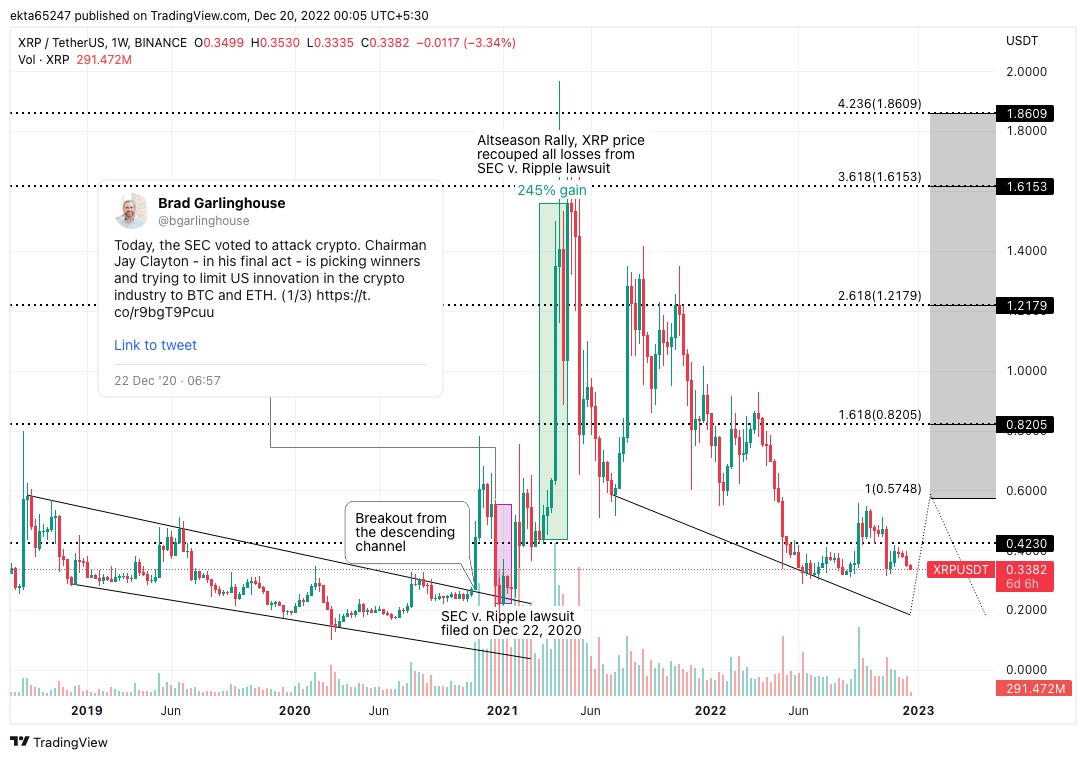The Importance Of Mental Health Literacy Education In Schools And Communities

Table of Contents
Benefits of Mental Health Literacy Education in Schools
Integrating Mental Health Literacy Education into school curricula offers significant advantages for students' well-being and academic success.
Reduced Stigma and Increased Help-Seeking Behaviors
Education plays a crucial role in challenging the negative stereotypes and misconceptions surrounding mental illness. Open conversations, facilitated by trained educators, provide accurate information and create a safe space for students to discuss their experiences without fear of judgment. This fosters empathy among peers and encourages help-seeking behaviors at earlier stages.
- Increased understanding of mental health conditions like anxiety, depression, and stress.
- Improved empathy and reduced stigma among students, creating a more supportive school environment.
- Early intervention for mental health issues, leading to better treatment outcomes and improved long-term well-being.
Improved Academic Performance and Well-being
There's a strong correlation between mental health and academic performance. Students struggling with mental health issues often experience decreased concentration, motivation, and engagement in school. Mental Health Literacy Education equips students with stress management techniques, coping mechanisms, and self-care strategies that directly impact their ability to learn and thrive academically.
- Enhanced emotional regulation skills, leading to better focus and concentration in the classroom.
- Reduced absenteeism and improved attendance due to fewer mental health-related absences.
- Increased engagement in school activities and a greater sense of belonging within the school community.
Equipping Students with Essential Life Skills
Mental Health Literacy Education is not just about understanding mental illness; it's about equipping students with crucial life skills for navigating challenges throughout their lives. This includes self-care strategies, problem-solving skills, and the ability to build and maintain healthy relationships.
- Building resilience to cope with stress and adversity.
- Developing effective conflict resolution skills for navigating interpersonal relationships.
- Promoting healthy relationship development and communication skills.
The Role of Communities in Promoting Mental Health Literacy
Schools alone cannot shoulder the responsibility for Mental Health Literacy Education. Engaging the broader community is crucial for creating a supportive network for individuals of all ages.
Community-Based Programs and Initiatives
Successful community-based programs often involve collaborations between schools, healthcare providers, community organizations, and mental health professionals. These initiatives offer a range of educational opportunities and support services.
- Workshops and seminars on mental health awareness and coping strategies.
- Support groups for individuals and families facing mental health challenges.
- Online resources and digital platforms providing accessible information and support.
- Public awareness campaigns to destigmatize mental illness and promote help-seeking behaviors.
Parental Involvement and Education
Parents play a vital role in supporting their children's mental health. Educating parents about adolescent mental health is critical for early identification of potential problems and effective intervention strategies.
- Parent education sessions on recognizing the signs and symptoms of common mental health disorders in children and adolescents.
- Open communication between schools and parents to facilitate a collaborative approach to supporting students' mental well-being.
- Access to family counseling services and support networks for families facing mental health challenges.
Addressing the Needs of Underserved Communities
Equitable access to Mental Health Literacy Education is paramount. Marginalized communities often face significant barriers to accessing mental health resources, requiring culturally sensitive approaches and targeted interventions.
- Ensuring language access and culturally relevant educational materials.
- Addressing systemic barriers to care, such as lack of transportation, financial constraints, and discrimination.
- Partnering with community leaders and organizations to tailor programs to the specific needs of underserved populations.
Effective Strategies for Implementing Mental Health Literacy Education
Effective implementation requires a multi-faceted approach involving curriculum integration, teacher training, and leveraging technology.
Curriculum Integration and Teacher Training
Integrating Mental Health Literacy Education into existing school curricula is essential. However, this requires adequately trained teachers equipped to deliver age-appropriate and evidence-based instruction.
- Age-appropriate curriculum aligned with national and state standards.
- Interactive learning activities and engaging teaching methods to enhance student learning.
- Ongoing professional development opportunities for teachers to expand their knowledge and skills in mental health education.
Utilizing Technology and Resources
Technology offers powerful tools for enhancing Mental Health Literacy Education. Online resources, interactive modules, and mobile apps can increase access to information and support.
- Interactive online modules providing engaging and accessible learning experiences.
- Virtual reality experiences simulating real-life scenarios to improve understanding and empathy.
- Mobile apps offering self-help tools, coping strategies, and access to mental health resources.
- Online support networks connecting students with peers and professionals.
Conclusion
Investing in Mental Health Literacy Education is an investment in the well-being of individuals, families, and communities. By reducing stigma, promoting help-seeking behaviors, and equipping individuals with essential life skills, we can create a more supportive and resilient society. We urge readers to advocate for increased funding and implementation of Mental Health Literacy programs in their local schools and communities. Contact your school officials, participate in community awareness events, volunteer with mental health organizations – your action can make a difference. Let's work together to prioritize mental health literacy education and create a healthier future for all.

Featured Posts
-
 Is The Belgium Vs England Match On Tv Kick Off Time And Viewing Guide
May 02, 2025
Is The Belgium Vs England Match On Tv Kick Off Time And Viewing Guide
May 02, 2025 -
 Should I Buy Xrp Ripple At The Current Price Under 3
May 02, 2025
Should I Buy Xrp Ripple At The Current Price Under 3
May 02, 2025 -
 Unrealistic Beauty Standards Christina Aguileras Photoshopped Pictures Ignite Discussion
May 02, 2025
Unrealistic Beauty Standards Christina Aguileras Photoshopped Pictures Ignite Discussion
May 02, 2025 -
 New Incentive Ponant Offers 1 500 Flight Credit For Paul Gauguin Cruise Bookings
May 02, 2025
New Incentive Ponant Offers 1 500 Flight Credit For Paul Gauguin Cruise Bookings
May 02, 2025 -
 Fortnite Downtime Chapter 6 Season 2 Delayed Players Frustrated
May 02, 2025
Fortnite Downtime Chapter 6 Season 2 Delayed Players Frustrated
May 02, 2025
